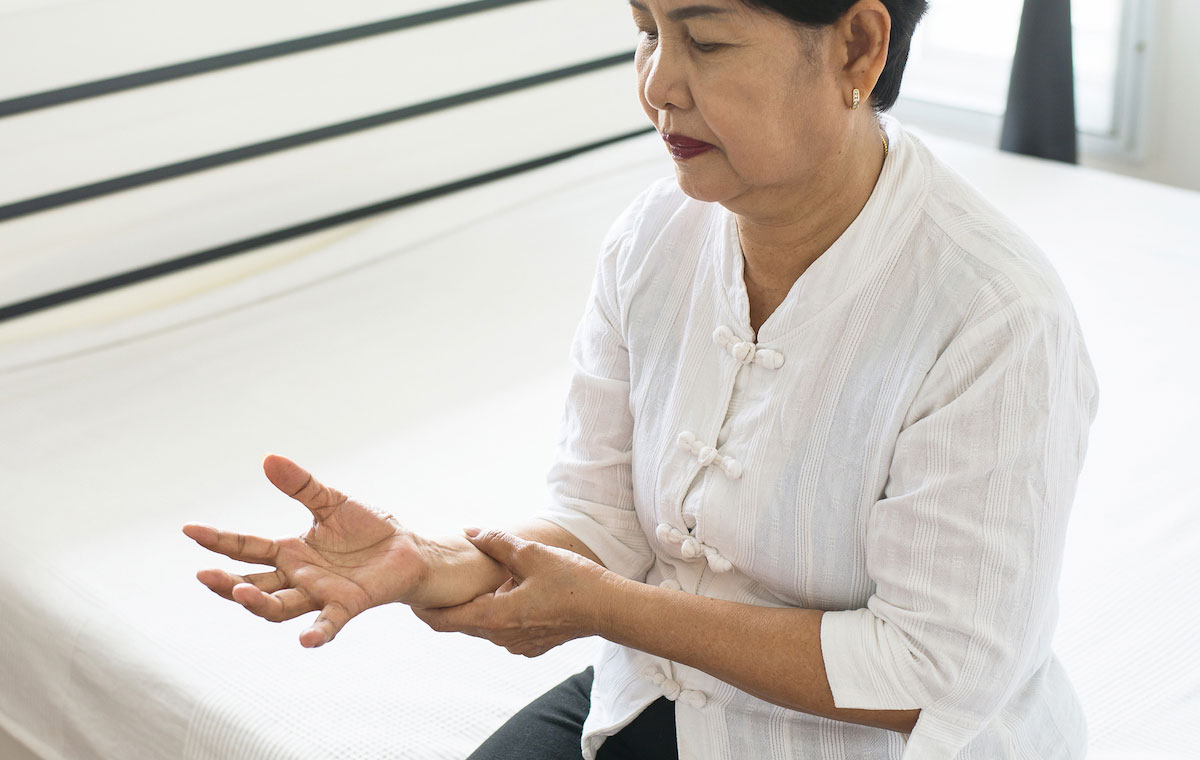Essential tremor, the most common adult movement disorder, affects nearly 10 million people in the United States. That’s more than 2 percent of the population.
Here’s a Q/A with Dr. Duarte Machado, co-director of Hartford HealthCare’s David and Rhoda Chase Family Movement Disorders Center:
Q. For something so common, many people may not know what it means to have essential tremors. Could you explain what happens when you have this condition?
A. Essential tremor is the most common movement disorder that presents as an action or postural tremor in the arms, hands or head. Imaging studies suggest that essential tremor is correlated with neurodegeneration in a part of the brain called the cerebellum, which is involved in the coordination of movement.
Q. How do you manage tremor disorders?
A. Current first-line medications include beta-blockers such as propranolol and anti-epileptics such as primidone. However, these medications are only partially effective at controlling tremors for some people in which case we use surgical treatments such as deep brain stimulation or DBS. Overall, DBS is the most effective treatment for essential tremor.
Q. Hartford Hospital was chosen as one of only three sites in the country to host the International Essential Tremor Foundation Education Forum. What can someone hope to learn at this forum?
A. We are very proud that Hartford was selected as a host city for this important forum, along with San Diego and St. Louis. At this forum, the executive director of the International Essential Tremor Foundation will speak about the important work of the foundation including research initiatives. I will speak on the diagnosis and treatment options for essential tremor. Finally, Amy Pace, an occupational therapist at Hartford Healthcare, will speak on coping with the physical effects of essential tremor on everyday living. The program will be exceptional.
Q. There is also a support group for people with essential tremors. What can they expect to gain from these group meetings?
A. In Connecticut, we are privileged to have a very strong and active support group led by Helen Moser. Meetings are held the first Saturday of every other month, and members can always expect a presentation on a particular facet of essential tremor, as well as review of recent medical research articles. Members also have the opportunity to participate in clinical trials or advisory committees related to new medications or medical devices for essential tremor. I thank Helen for all of her work in making the support group so successful and a national model.
Learn more about Deep Brain Stimulation at Hartford HealthCare David and Rhoda Chase Family Movement Disorders Center here, or call 1.855.HHC.HERE (1.855.442.4373).

